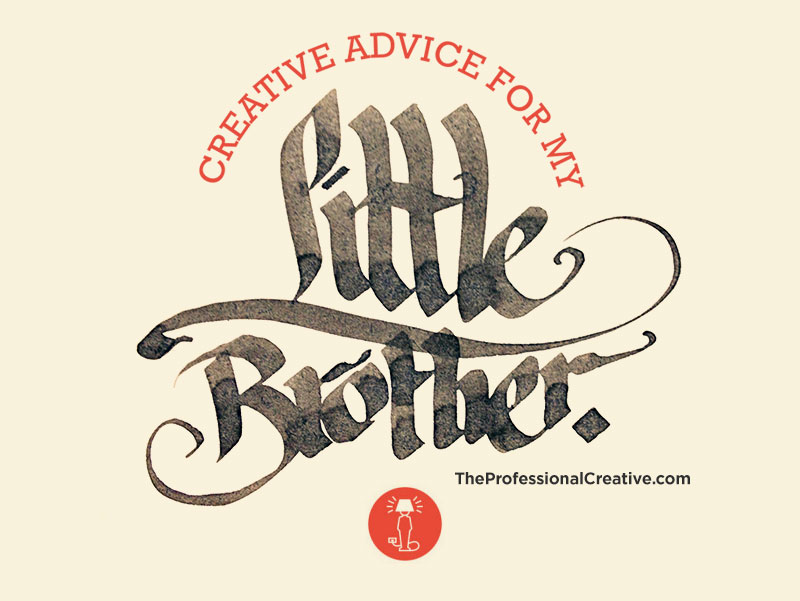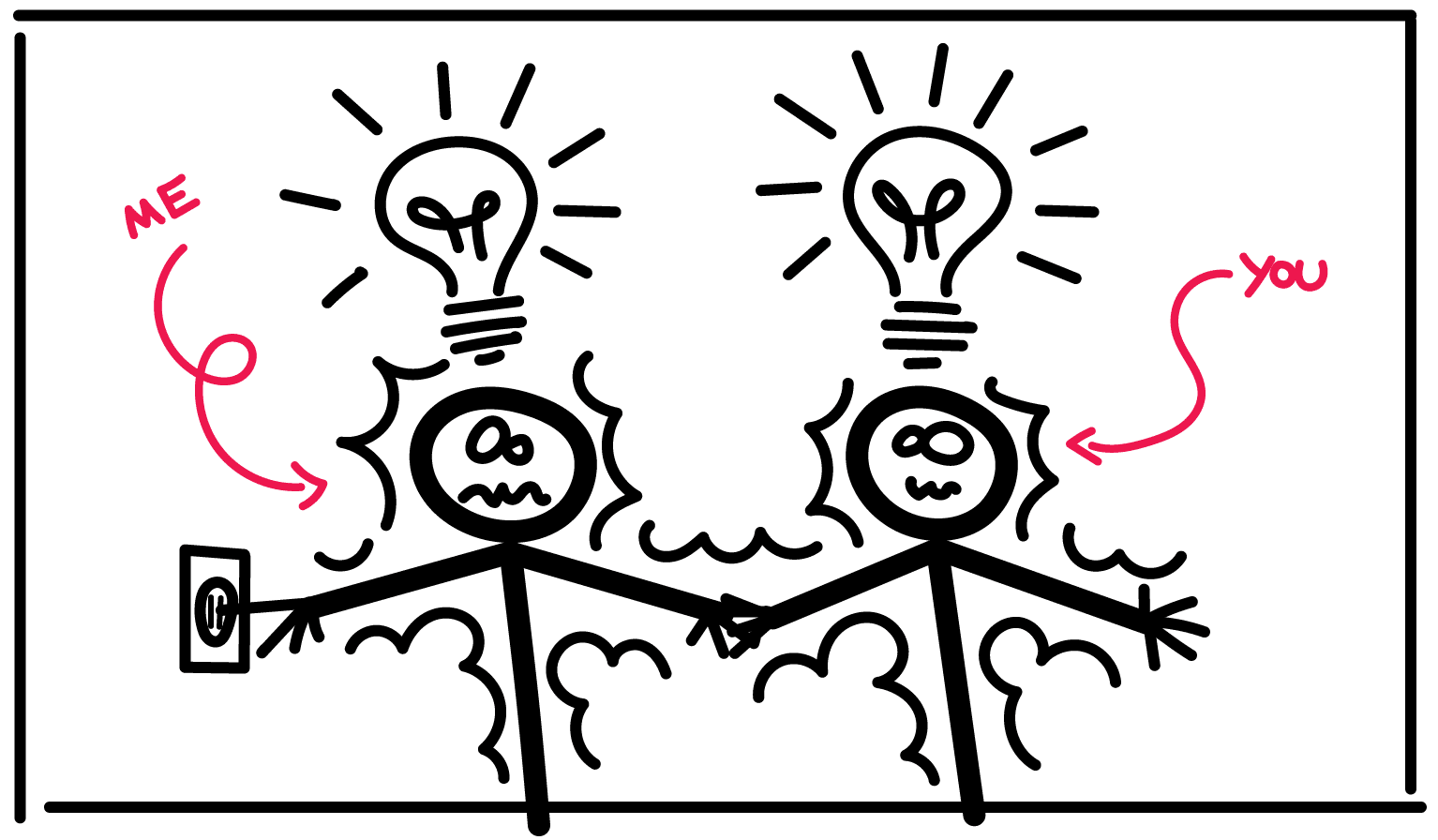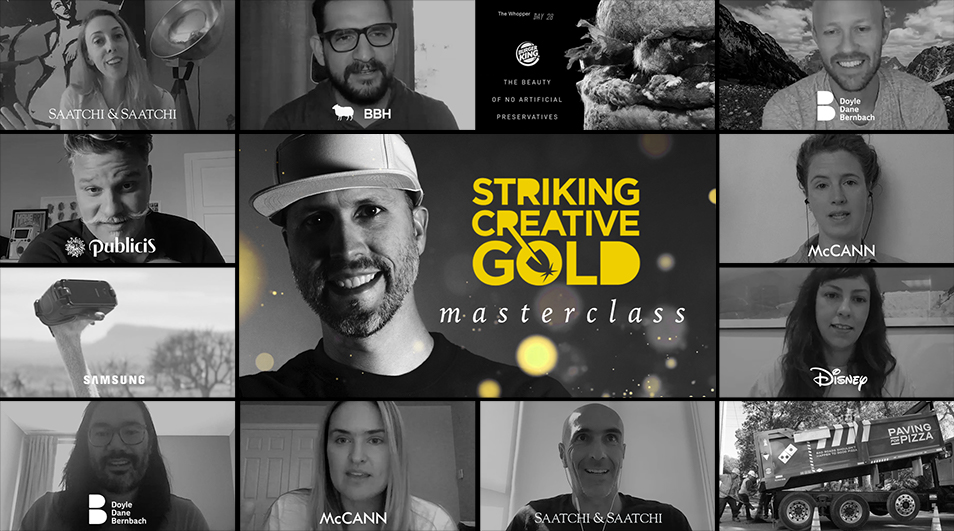My little brother (who’s now taller than me) is a talented computer programmer who comes from a family with no background in IT whatsoever. He’s been accepted as an intern at Facebook and he’s carving a promising career for himself without any borrowed influence, and that’s something to be admired. I obviously want him to make the best out of his opportunity, so below is the best creative advice I can give him.
Software development has emerged as one of the most creative fields of our era, so I hope he’ll find some use to the lessons I’ve leaned about creativity – and work life – from my career in advertising. So here it goes:
Dear brother,
1. Learn the rules so you know how to break them.
It’s an absolute pleasure to understand how something works. To master a programming language like you do, for instance, and understand how things work behind a user’s interface must be a pretty great feeling.
Once you master something, you understand its limitations. And only then you can try to overcome those limitations – by breaking the rules you mastered. This is the golden rule of creativity. New results will not be achieved by doing the same thing that has been done before.
The funny thing is that the same principle can be applied to different aspects of life – like your work environment, for instance. When you join a company (specially a big one), you always hear things like “oh, you’ll never be able to get into his calendar” or “The boss doesn’t really have time for us” or “don’t bother presenting new ideas, they never buy it”. Stuff like that and the sheer vibe of the office will make you feel like you should act in a certain way. Those are the rules – and once you know them, you can break them. Try and get that proactive idea in front of the boss, try to get into the calendar of people who may be able to help you, call their extension rather than sending an email. Chat them up by the water cooler. Do what others won’t dare and make sure you have your elevator pitch ready.
2. There’s no shame in ignorance. There’s shame in remaining ignorant.
The way I see it, the kind of person who can make the most damage in a collaborative work environment are those who pretend they know what they don’t. Those who never say “I don’t know”. It’s either an effort to look good in front of others or they are simply ashamed of not knowing something. The curious mind is not ashamed of ignorance; it exposes it so it can be extinguished. How can anyone teach you something if they think you already know it?
An internship is THE place to be curious, to ask questions, to learn. “What do you mean by that?”, “What does that acronym stand for?”, “How did you do that?”, “Can you show me how?” and other phrases like these should be part of your day-to-day. Don’t be afraid to say “I don’t know”, but be ready to chase the answers. The more knowledge you have, the greater your creative potential.
3. Learn from everyone else’s mistakes, too
Learning from your own mistakes: that comes naturally. What’s even more useful – and certainly a tad harder – is to learn from everyone else’s mistakes. It’s harder to learn something you didn’t experience yourself, but it is in truth the only way to improve beyond your own limits.
We learn from someone else’s mistakes when we read a book, watch a movie, when we watch someone fail and succeed, etc. – and when we are given advice.
An advice is knowledge detached from experience – and that missing connection may lead us to disregard them. I do remember being on the receiving side of very valuable advice as a young man. I didn’t pay attention to those, just because I didn’t know I’d need it. Looking back, all I wish is I had the experience I have now when I was your age, so now it’s my turn to give out advice.
Pay extra attention to advice send your way by more experienced people – at work or otherwise (you should also ASK for advice. See #2). It may not make sense at first, but if you write it down and keep it in mind, it will eventually make sense. It just might be the answer to a problem you don’t have yet.
4. There’s always a different way of doing things
As a programmer, you're aware of this one. In programming, there’s always a more efficient way to make things work, there’s always a way to optimize code to make it faster, or use less processing power. You told me that yourself. This approach to problem solving can be applied in the real world as well.
Creativity comes into play when we actively look for solutions beyond the obvious. “What’s another way to do this?” is a question you should ask yourself not only when you’re writing code, but all the time. Doesn’t matter what problem you’re facing: be it carrying a big box up the stairs or talking to a girl you like – actively exploring options beyond the ones your mind automatically offers is the key to creativity.
5. Collaborate to grow
When I was a young creative in advertising, I wanted to do everything myself. I had a vision I wanted fulfilled exactly how I intended it and didn’t want anyone else involved to mess it up. When I would do that, my work would fall short of others' and I’d end up frustrated and exhausted. Collaboration is the key to create work that is greater than our own limited capabilities.
One of the most valuable lessons we can learn as creative professionals is that our objective is to make our work as good as it can possibly can be, not as good as we can make it on our own.
6. Watch "The Matrix"
I can't believe you've never seen this movie. Just so you know, “The Matrix” was an absolute turning point for computer programmers. Before “The Matrix” coders were nerds, after that they were heroes. “The Matrix” is one of the reasons why your profession is so hot right now. Know your history!
I hope this helps, bro. Good luck, and let me know how else I can help.
For everyone else reading this, leave a comment and let me know if you have any other advice for my brother.


